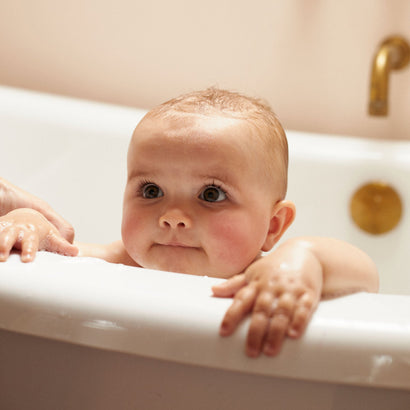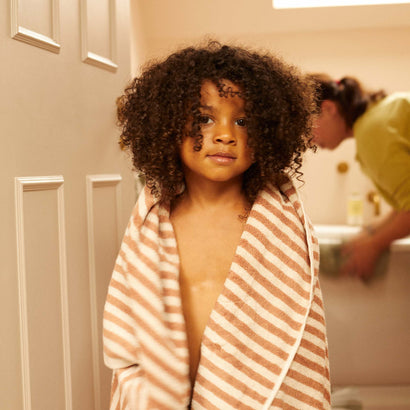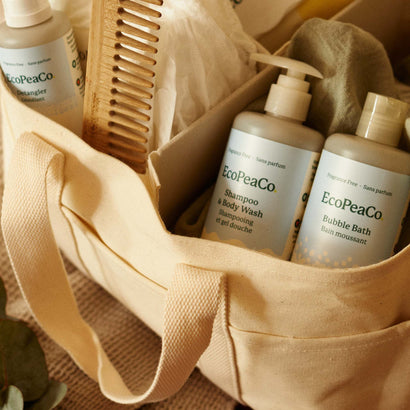Taking a greener approach to parenting? Sometimes this can seem overwhelming with the amount of information available on what we should or shouldn’t be doing, but in order to truly make a difference, simple mindset shifts may be all you need. One of the greatest things we can do as parents is instill a sense of respect for the environment within our children, which will set the stage for them to grow up and do the same. Even though it may seem daunting, it doesn’t have to be difficult. In fact, having kids is a great time to begin making meaningful changes inside and outside the house. Read on to learn 5 ways to be greener parents and raise eco-conscious kids in the process.
1. Teach them about their connection to their surroundings.
When we know better, we do better. Teaching a sense of connectedness to our environment is an easy and effective way to instill respect and get our kids thinking about their impact. This can also be beneficial for us as parents, especially if this is something we are not accustomed to doing ourselves. On an everyday outing, try talking to your kids about what they’re seeing and how it relates to them. For example, if you’re out walking through a forest, maybe point out the trees and tell them how they are also homes for birds and other wildlife, and when it rains the water helps them grow so that we can walk among them etc... Creating a dialogue of connectedness is a simple way to help your little ones understand how things work together and explore their own role in the world. Providing positive experiences in nature is how we come to appreciate the big picture.
2. Outside time > Screen time
This is as much an exercise for us as parents as it is for our kids. Did you know that on average, kids today spend about seven hours in front of screens each day? That’s almost as much time as we spend working! Instead of tablets or TV, go for a quick walk after dinner, or use items in nature, like rocks or sticks, to teach things like counting instead of a tablet game. Things like this get the whole family out of the house and away from the temptation and distraction of screens. Ditching screens more often in favour of outside time can lower electricity usage, clear your mind and foster deeper connections. Note: It is recommended for children between 2-5 years old to spend no more than one hour each day in front of any screen.
3. Include them in the way the house works.
If you recycle or compost, tell them what you are doing and why. If they are old enough, let them help. Including them in these important daily tasks helps them to understand “why” we do things. A well rounded understanding of the way things work is an extremely effective way for little ones to begin connecting the dots. It doesn’t matter that you might not have the most in depth answers, a simple reasoning as to why your family chooses to do things this way will do the trick. If your child is too young to help, simply talking to them as you’re doing it is a great habit to get in to and takes almost no extra effort.
4. Practice what you preach.
Don’t let the tap run, unplug unused appliances and turn off lights when you are not using them. Kids are extremely observant and even when you don’t think they are watching, they are (if you’re a parent already, you’re likely nodding your head). Walk the talk and your kids will follow - even if it doesn’t always seem that way.
5. When in doubt, opt for natural
When it comes to going greener with stuff, opt for natural fibres, fabrics, washing products and toys as much as possible. By doing so, you avoid unnecessary fillers and potentially harmful chemicals for your baby and the environment. Things like bamboo diapers and wipes, cotton clothing, simple bars of soap and wooden toys are excellent alternatives to their synthetic and plastic alternatives for a greener and safer home all around. Organic and local food is also an extremely impactful shift if you are able to, not only for your health but for the environment as well.Doing small things everyday and teaching our kids the importance of doing the same, is one of the most powerful ways we can support a bright and healthy future not just for our children, but their children as well and generations to come.
Something we haven’t included that you think should have made the cut? Let us know!








